Case Bulletin – Third Circuit Permits Insurer’s Contribution Claim Against Liquor Licensee
On August 22, 2018, the United States Court of Appeals for the Third Circuit reinstated an insurer’s contribution claim against a liquor licensee for allegedly overserving alcohol to its insured driver. Encompass Insurance Co. v. Stone Mansion Restaurant Inc., No. 17-1479 (argued October 12, 2017).
In March 2011, Brian Viviani and Helen Hoey attended a function at a restaurant in Pittsburgh, Stone Mansion. Later, Mr. Viviani left Stone Mansion with Ms. Hoey as a passenger in his vehicle. After Mr. Viviani drove a short distance, his vehicle struck a guardrail, flipped onto its roof, and killed him while significantly injuring Ms. Hoey. Ms. Hoey subsequently brought an action against Mr. Viviani’s estate, alleging that Mr. Viviani caused the accident by driving while intoxicated. Mr. Viviani’s estate tendered its defense to the insurer of the subject vehicle, Encompass Insurance, who eventually settled the matter for $600,000 in exchange for a general release.
Encompass then filed suit against Stone Mansion, contending that it stands in the shoes of Mr. Viviani’s estate; Stone Mansion served Mr. Viviani alcohol while he was visibly intoxicated; a business who serves alcohol to a visibly intoxicated person is legally responsible for any damage that person may cause under Pennsylvania’s Dram Shop Act; and Stone Mansion is liable to Encompass for contribution as a joint tortfeasor under the Uniform Contribution Among Tortfeasors Act (“UCATA”). The United States District Court for the Western District of Pennsylvania dismissed Encompass’ claim, holding that Pennsylvania’s Dram Shop Act is narrowly tailored to permit recovery against liquor licensees only by third persons for damages inflicted upon such persons.
On appeal, the Third Circuit reversed the Western District’s dismissal. While noting that the Dram Shop Act is indeed narrowly tailored, the court found that Encompass was not seeking recovery against Stone Mansion under that law. Instead, Encompass seeks recovery from Stone Mansion under the UCATA as a joint tortfeasor. The Third Circuit held that the language of the Dram Shop Act does not preclude recovery for contribution against a liquor licensee, while the UCATA specifically permits one tortfeasor to seek contribution for her payment in excess of her share of liability against a second tortfeasor who also contributed to the plaintiff’s injury regardless of the theory of liability against the tortfeasors. The Third Circuit reasoned that equity principles demand the possibility of contribution from a liquor licensee to the insurer of an intoxicated person in order to encourage insurers to settle claims and incentivize licensees to serve alcohol responsibly, which promotes the Dram Shop Act’s purpose of protecting Pennsylvania’s citizens.



